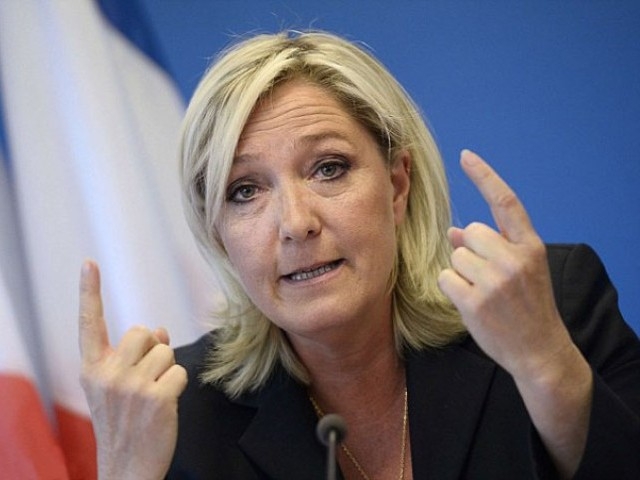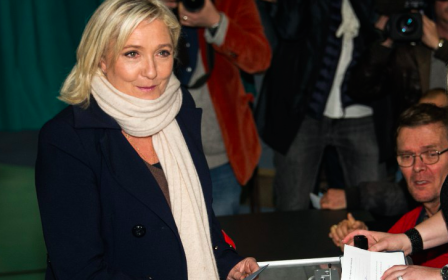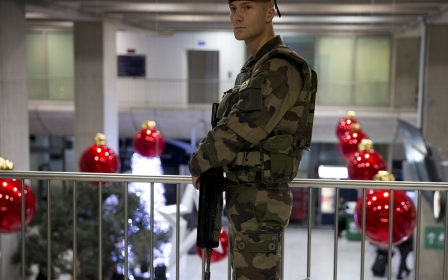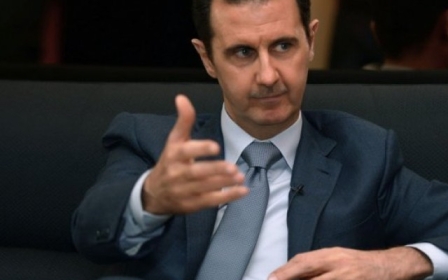France's National Front makes historic poll gains

France's far-right National Front party saw record-high results in regional polls on Sunday, held under a state of emergency just three weeks after Islamic State (IS) attackers killed 130 people in Paris.
The FN came first with around 28 percent of the vote nationwide and topped the list in at least six of 13 regions, according to estimates from the interior ministry.
FN leader Marine Le Pen and her 25-year-old niece Marion Marechal-Le Pen broke the 40-percent mark in their respective regions, shattering previous records for the party.
Despite the strong result, FN faces an uphill battle to clinch a run-off vote next week after Socialists withdrew candidates to block it from power.
Socialist leader Jean-Christophe Cambadelis said his party would withdraw from the second round in the regions Le Pen and her niece were leading and call on its voters to back conservatives in order "to block" the FN.
But former conservative president Nicolas Sarkozy, head of The Republicans, which leads the right-wing grouping, repeated his refusal to do the same in key polls where the Socialists are ahead.
"We must hear and understand the profound exasperation of the French people," he said.
Le Pen said she was "not worried" by Socialist plans to withdraw but acknowledged that "things will obviously be a bit less straightforward".
The polls were held under tight security following the country's worst-ever terror attacks, which have thrust the FN's anti-immigration and often Islamophobic message to the fore.
Around half the 45 million registered voters took part in the polls, which will see the top two parties in each region go to a run-off next Sunday.
According to the French newspaper Le Monde, the National Front is projected to get close to 7 million votes - twice as much as "the shock of 21 April 2002", when Jean-Marie Le Pen (Marine's estranged father) surprised French pollsters by getting to the second round of presidential elections, beating the Socialist candidate Lionel Jospin. Le Pen received 4.8 million votes but was defeated in a run-off against Jaques Chirac.
The early estimates showed Marine Le Pen taking a whopping 40 percent of the vote in the economically depressed northern region of Nord-Pas-de-Calais-Picardie, once a bastion of the left.
Marion Marechal-Le Pen did even better in the vast southeastern Provence-Alpes-Cote d'Azur on 42 percent.
"I expect to gain enough momentum in this first round to be optimistic about the second round" next Sunday, Marine Le Pen said as she cast her vote earlier in the day.
However, these regional elections only mark the first round. The next round elections take place on 13 December.
A grouping of right-wing parties took between 27 and 27.4 percent, the estimates showed, while the ruling Socialist party and its allies took 23.5 percent.
FN vice-president Florian Philippot told AFP the results showed they were "very much the first party of France".
According to the analyst Dominique Albertini, a writer for the French newspaper Liberation, these National Front electoral victories could easily propel Marine Le Pen into becoming a presidential candidate.
"Five years ago, Le Pen's party was totally absent from 10 of the 22 former regional councils and only had 118 elected representatives at this level. This figure will have been comfortably overtaken by the end of the second round, which will give the National Front an unrivalled presence at the regional level and will make the task of collecting 500 signatures for Marine Le Pen's candidacy at the presidential elections in 2017 a mere formality."
France's regions have recently been consolidated and given more power over areas such as schools, transport and support for local businesses.
President Francois Hollande, who cast his vote in Tulle in central France, has seen his personal ratings surge as a result of his hardline approach since the November 13 attacks in Paris.
But his Socialist Party has languished behind the FN and the centre-right Republicans led by former president Nicolas Sarkozy.
The FN was also seen as in with a chance in the eastern Alsace-Champagne-Ardennes-Lorraine region that borders Belgium and Germany, according to polls by Ipsos and Odoxa.
If traditional parties refuse to join forces against them, analysts predict the FN could take all three regions in the second round on 13 December.
Victory would not only put the party at the head of a regional government for the first time, but would also give Marine Le Pen a springboard for her presidential bid in 2017.
In her campaign, she has focused repeatedly on the migrant camp in Calais known as "The Jungle" where thousands of people are camped trying to reach Britain and northern Europe.
With the FN also locked in a close race for Burgundy and Franche-Comte in the east, politicians across the spectrum appealed to their supporters to head off a historic victory by the party.
French politicians from the centre-left and right have expressed concerns about the National Front’s results.
Bordeaux Mayor Alain Juppé, a former foreign minister and a political heavy weight of centre right, said:" We have to act lucidly, faced with the advance of the National Front.
"I save my comments for tomorrow's meeting of the political leadership of the Republicans. We have to take up the fight again, because the National Front offers no feasible solution to the problems of national security and unemployment."
In the middle of the campaign, Prime Minister Manuel Valls called the FN “antisemitic and racist” and suggested that all the leftist parties form an alliance with the centre-right to block Le Pen.
Ahead of the vote, alls urged party activists to "appeal to patriotism" to ensure a massive turnout, with Le Pen accusing him of waging "total war" against her.
The FN - whose leaders have repeatedly linked immigration with terrorism - has been climbing in the polls since the gun and suicide bombing attacks in Paris.
When it emerged that at least two of the attackers had entered Europe posing as migrants, the FN went to town with a message of "we told you so."
But any election triumph will depend on whether the other parties are able to forge alliances against it.
Socialist leaders will begin talks after the first results on Sunday to decide whether to withdraw from some second-round battles, while the Republicans' strategy meeting is set for Monday.
One Socialist expected to win is Defence Minister Jean-Yves Le Drian, a popular choice in the northwestern Brittany region.
New MEE newsletter: Jerusalem Dispatch
Sign up to get the latest insights and analysis on Israel-Palestine, alongside Turkey Unpacked and other MEE newsletters
Middle East Eye delivers independent and unrivalled coverage and analysis of the Middle East, North Africa and beyond. To learn more about republishing this content and the associated fees, please fill out this form. More about MEE can be found here.





